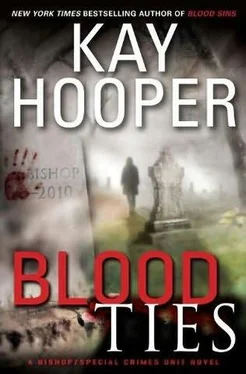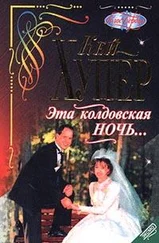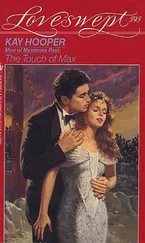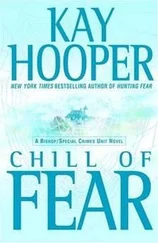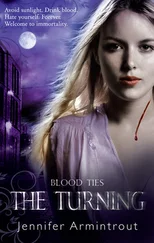Most of the time.
And it helped. Most of the time.
But Diana didn’t think the problem tonight was her surroundings. She’d been on edge since she and Quentin joined this investigation a couple of weeks before, and she wasn’t sure why. Maybe it was because this was the first real SCU case she’d been assigned, and she was still uncertain of her training and abilities.
Maybe it was because her relationship with Quentin was still tentative and wary.
Maybe it was the case itself, twisted and depressing as serial-murder investigations tended to be. With little evidence and few leads, she had the hollow feeling they were pretty much chasing their own tails, waiting for a break in the case that might never happen, while viciously murdered and tortured victims were being cast aside like garbage and contemptuously left for them to find.
Contemptuously?
It was an easy guess, she decided, requiring no particular skill as a profiler—which she wasn’t. But she had begun reading up on the subject, as she was reading up on so many others, and what stuck in her mind was the accepted fact that most if not all serial killers developed and followed very specific, unique rituals—many involving burial or whatever means they chose to dispose of bodies. Some rituals were even weirdly respectful, with victims dressed in clean clothing and laid out in carefully dug graves.
This killer very clearly didn’t see his victims as people deserving of any respect, not before death and not after.
Diana realized she was endlessly shuffling her deck of playing cards and tossed them aside with a half-conscious curse. She leaned against the pillows banked behind her and stared across the room at an old, mostly black-and-white documentary on TV about World War II.
So he feels contempt for his victims. No big surprise there. Nothing helpful there. Miranda probably had that little bit of information nailed with the first victim. If not before .
The real problem, she decided reluctantly, was that she felt pretty damn useless. Despite intensive training over the last months, she didn’t feel qualified to investigate a single murder, let alone a string of them. Even as…just one of the team. Not only had she never been any sort of cop, but her entire adult life—right up until little more than a year ago—was more dreamlike than real in her mind.
Except for scattered instances of a psychic ability she was still coming to terms with—which had been notably absent for weeks now—she had literally sleepwalked through her life.
And Diana wasn’t entirely sure she wasn’t still doing that, at least some of the time. How else could she explain her very calm reactions today—to the bodies, the bear, Hollis nearly being shot?
Jesus, I didn’t even ask Hollis if she was okay .
Not that Hollis had seemed all that concerned about getting shot at, but despite the other woman’s casual friendliness and humor, Diana didn’t think she knew any of the agents well enough to manage a decent guess at what they might be feeling at any given moment.
Except Quentin. Maybe.
But that wasn’t what was really bothering her.
Am I still sleepwalking? Is that what’s going on here? Why I feel so uneasy and uncertain all the time? So… out of place and unsure of myself? Given the opportunity to live a full life, to get into the game, did I opt out?
No matter what Quentin says, was Dad right when he said I wasn’t cut out for this sort of job, right to believe I wouldn’t be able to handle it? Is that why I’ve been so hesitant, so uncertain? Do I believe him?
Is that why I’ve been pushing Quentin away?
She didn’t want to admit that might be true. Didn’t even want to think it might be true.
Decided not to think about it at all.
Oh, yeah, that’s the grown-up way to handle it. Just put your head in the sand .
She told her inner self to shut up and rummaged among the rumpled bedclothes for the TV remote. Then, determinedly keeping her mind blank, she began to channel-surf, looking for something even more boring than an old documentary about World War II.
DIANA OPENED HER EYES SLOWLY, then sat up a lot faster, shoving the covers aside to sit on the edge of her bed.
Her bed—changed. Weirdly one-dimensional, a photograph without light or shadow. Like the room that was dull and without color or life or warmth. It was filled with that oddly flat, colorless twilight that was not day and not night but somewhere in between. She had always suspected that this place lay somewhere outside time, apart from what she knew and understood time to be. That it was something between the living world and whatever lay beyond it.
As far back as she could remember, she’d called it the gray time.
She turned her head and looked at the clock on her nightstand, which had boasted large red digital numbers in a readout easy to see. Now it was blank, featureless and numberless. All clocks were the same here, missing numbers or missing hands and numbers.
No time passed in the gray time. Funny, that.
Creepy.
Diana got out of bed, not bothering to find slippers or even socks, though her feet were cold; it was always cold in the gray time, and no amount of clothing or blankets had ever made a difference. Besides, she wasn’t physically here , after all. At least—
She looked back, both relieved and, as always, unsettled to see herself still there in the undisturbed bed, sleeping, face peaceful. Her physical body breathed, its heart beat. It lived.
But everything that made her emotionally and psychologically Diana—her personality, her soul—no longer occupied that body. She couldn’t see the thread connecting the two halves of herself but knew it existed. Knew how fragile it was. How easily it could be severed.
Yeah, great job scaring yourself. Stop thinking about what could happen. Just move .
“Remember all this in the morning. No matter what happens. There’s no more forgetting now,” she told her sleeping self, unsurprised by the hollow, almost echo of her voice. Normal, for the gray time. And so was the faint and faintly unpleasant smell.
Her own alert readiness and familiarity with this place was also normal, and she wondered as she always did why she never felt this sure of herself in the real world. It would make so many things so much easier, she thought, if she could feel this way all the time.
That rueful awareness had barely dawned when she started around the foot of the bed toward the door and was jolted to a stop by what she saw. “What the hell are you doing here?”
“Beats me,” Hollis said, looking around her warily. She was standing just inside the door to the hallway. “This is your world, not mine. I was asleep in bed, minding my own business, a minute ago. I saw me there. Which was an experience I’d rather not repeat, thank you.”
“I told you not to look back.”
“Hey, I was curious. And at least I didn’t turn into a pillar of salt, so, you know, thankful for that. Why’d you pull me in?”
“I didn’t,” Diana said slowly. “I’ve only done that once, when we tried it months ago—and I was surprised as hell that it worked.”
“Then why am I here?”
“That was my question, remember?”
Hollis shivered and absently rubbed her bare arms. “Damn. If I’d known this was going to happen, I would have worn flannel pajamas instead of this nightgown.”
Diana was about to explain that more clothing wouldn’t have helped the chill, but then she took a second look and said, “Huh. That’s an awfully… urn… Not something you usually pack for a work trip, is it?”
“Can we just get on with it, please?”
Читать дальше
